 Title: My Life as a Fake (Goodreads)
Title: My Life as a Fake (Goodreads)
Author: Peter Carey
Published: Random House, 2003
Pages: 320
Genres: Literary Fiction
My Copy: Paperback
Buy: Amazon, Book Depository, Kindle (or visit your local Indie bookstore)
In 1943 two conservative classicists set out to expose the absurdity of modernist poetry. Both James McAuley and Harold Stewart were classical trained poets, who didn’t think much about modernism; it didn’t rhyme, didn’t make sense and it just didn’t look right, it was fake poetry. If an everyman can abandon technique and rhythm and create poetry, what was the point of high art? They created this everyman, Ern Malley and submitted poetry under this name to the literary magazine Angry Penguins. The Ern Malley hoax has become one of the biggest literary scandals in Australian history. While the hoax crippled modernist poetry within Australia, ultimately this parody backfired on McAuley and Stewart. The poetry, which was written in a day and full of word plays and puns became a sensation in the 1970’s. Their attempt to parody modern poetry and create something fake turned into something real, beyond their control and is now celebrated as fine examples of surrealist poetry.
Peter Carey’s My Life is a Fake explores the idea of fakery while paying homage to the Ern Malley hoax. Knowledge of this hoax is the backbone of this post-modernist novel, so much so that he covers his thoughts on it in the back of the book. Thinking about this novel I get the idea that this is a book that demands the reader to think about the purpose of reading. While this is considered contemporary fiction, it really demands a lot from the read and it wants to address a number of literary issues. Editor for Monthly Review Sarah Wode-Douglass, while traveling to Kuala Lumpur, encounters the perpetrator of the hoax after many years. The novel goes on to explore the literate mystery of forgeries but I won’t go into too much detail, it is quite a ride.
“I still believe in Ern Malley. (…) For me Ern Malley embodies the true sorrow and pathos of our time. One had felt that somewhere in the streets of every city was an Ern Malley (…) a living person, alone, outside literary cliques, outside print, dying, outside humanity but of it. (…) As I imagined him Ern Malley had something of the soft staring brilliance of Franz Kafka; something of Rilke’s anguished solitude; something of Wilfred Owen’s angry fatalism. And I believe he really walked down Princess Street somewhere in Melbourne. (…) I can still close my eyes and conjure up such a person in our streets. A young person. A person without the protection of the world that comes from living in it. A man outside.” Max Harris, editor of Angry Penguins.
While this book is told in a first person narrative, from the perspective of Sarah, as a reader I wrestled with the perspective. The novel explored the life of Sarah, her traveling partner John Slater who she describes as an unapologetically narcissist. Also we learn about Christopher Chubb and his monster, the non-existent Bob McCorkle. My mind wrested with questions like, whose life was I reading about? Whose words am I reading? Whose mythology do I accept? Personally I think these are the questions Carey wants us to ask, also I have to wonder what type of fakery are we talking about in the title?
Now I called the fictional poet Bob McCorkle a monster because this novel is influenced by a lot of literature but the most obvious is Mary Shelley’s Frankenstein. Like McAuley and Stewart’s hoax, Bob McCorkle was a monster in the eyes of its creator and takes on a life of its own. There are also references to Paradise Lost (which can be connected to Frankenstein) and T.S. Eliot’s The Waste Land. An understanding of Greek mythology is helpful as well, especially Orpheus. This is a tricky book to read, and it took me a while to get the hang of it. Once I got into the rhythm of the novel, I think understanding and progress was a lot easier, though I do think a better understanding of literature would be helpful.
My Life as a Fake explores the power of creation, sometimes it just takes a life on its own with no way of stopping it. We must wrestle with the question of whether the man claiming to be Bob McCorkle is a fanatic; someone with an identity delusion, a hoaxer’s hoaxer, an accident, or an illusion called into being by its creator. As My Life as a Fake is an Australian novel, I can’t help but wonder if this is exploring the idea that Australia doesn’t produce Art, rather parodies and fakeries. The misconception that Australian artist must trade in masquerades to get noticed, a slightly old point of view but one that might have been still relevant in the time of the hoax.
I had to read this book for a university course so I also had to think about post-colonialism (a common theme in the subject). I’m not sure how this works as a post-colonial novel but I have to ask, as a colonized nation is this book viewing Australia as Frankenstein’s monster. Whose country are we in? Why does it matter? Are we the bastard spawn of a powerful creator (England)? Are we just fakes in the eyes of Europeans? Did we start off as fakes that took on a life of its own? Not really important questions for the book but interesting enough to share in this review.
Given that Frankenstein heavily influences My Life as a Fake, does this make this a modern gothic novel? They do invoke similar themes, interesting that this novel is meant to be popular fiction and yet it still explores high art in a complex, post modern way. Makes me wonder just how successful this novel was for Peter Carey. For me, while it was a difficult read, I found pleasure in studying this book, makes me want to read all of Carey’s books, maybe I’ll try The True History of the Ned Kelly Gang next.

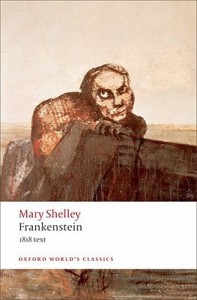 Title: Frankenstein (1818 Edition) (
Title: Frankenstein (1818 Edition) (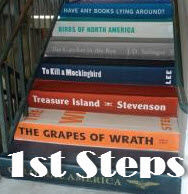
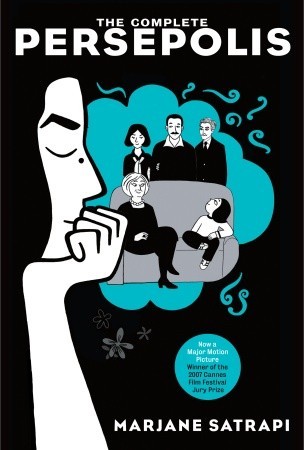 Persepolis by Marjane Satrapi
Persepolis by Marjane Satrapi Fahrenheit 451 by Ray Bradbury
Fahrenheit 451 by Ray Bradbury
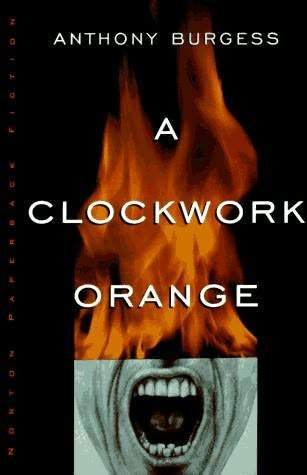 A Clockwork Orange by Anthony Burgess
A Clockwork Orange by Anthony Burgess 

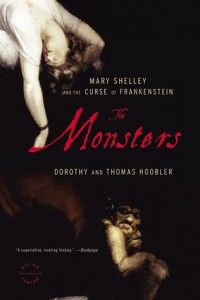 Title: The Monsters (
Title: The Monsters (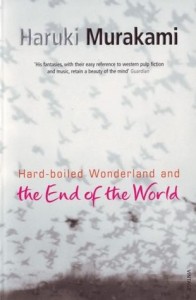 Title: Hard-Boiled Wonderland and the End of the World (
Title: Hard-Boiled Wonderland and the End of the World (
 As most of you may know, I never use to be much of a reader; it was only last year that I decided to discipline myself to read more. So I thought I might as well share with you five books that really had strong effects on me and my views on life.
As most of you may know, I never use to be much of a reader; it was only last year that I decided to discipline myself to read more. So I thought I might as well share with you five books that really had strong effects on me and my views on life. Welcome to a new section from my blog which I like to call Question Tuesday; each Tuesday I’ll be asking a question relating to reading and book blogging. I have a lot of questions already I want to cover but I want to leave it open for others to ask me questions as well via comments or via twitter. The first question I’m going to cover is my reading history.
Welcome to a new section from my blog which I like to call Question Tuesday; each Tuesday I’ll be asking a question relating to reading and book blogging. I have a lot of questions already I want to cover but I want to leave it open for others to ask me questions as well via comments or via twitter. The first question I’m going to cover is my reading history.
